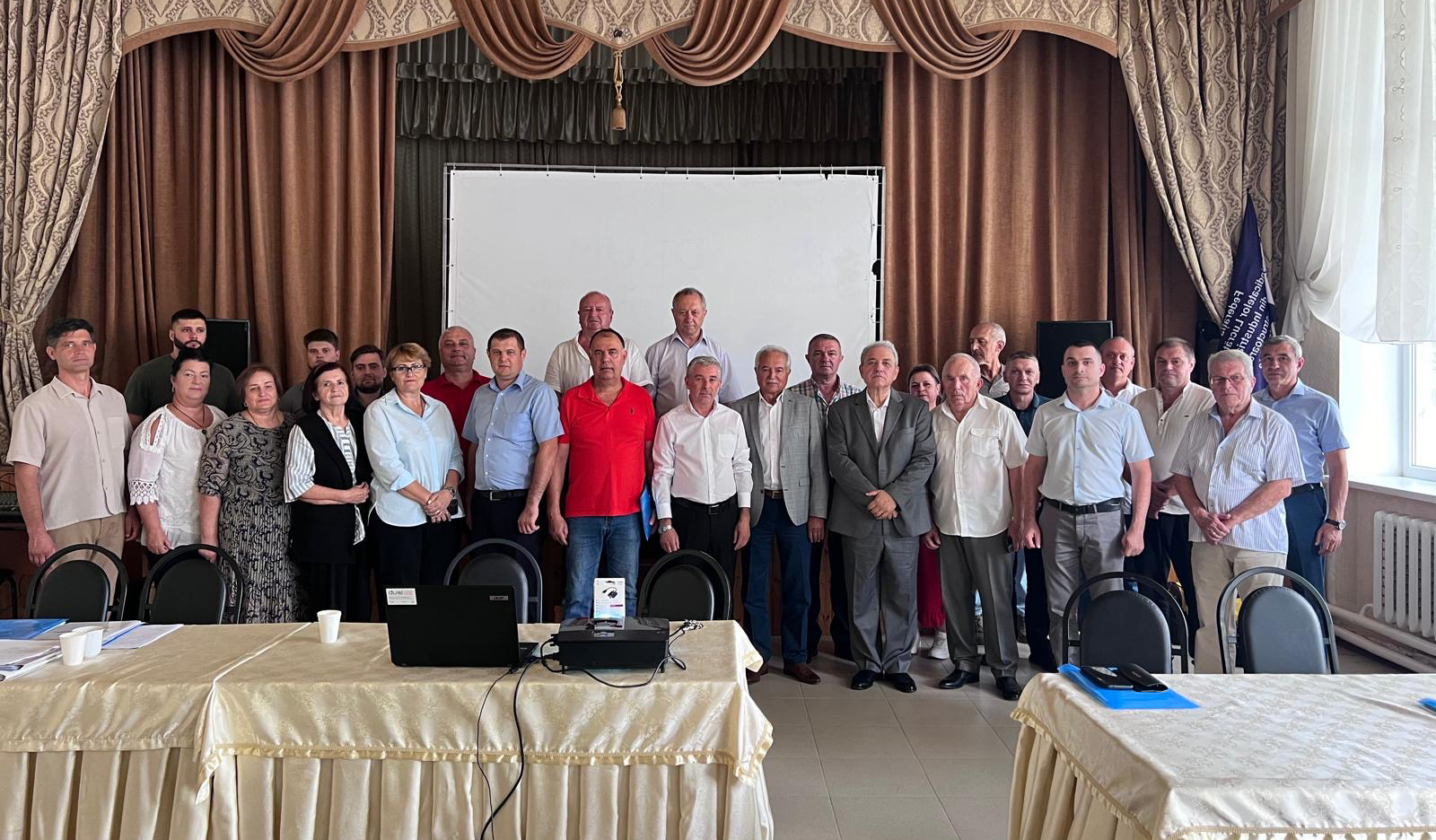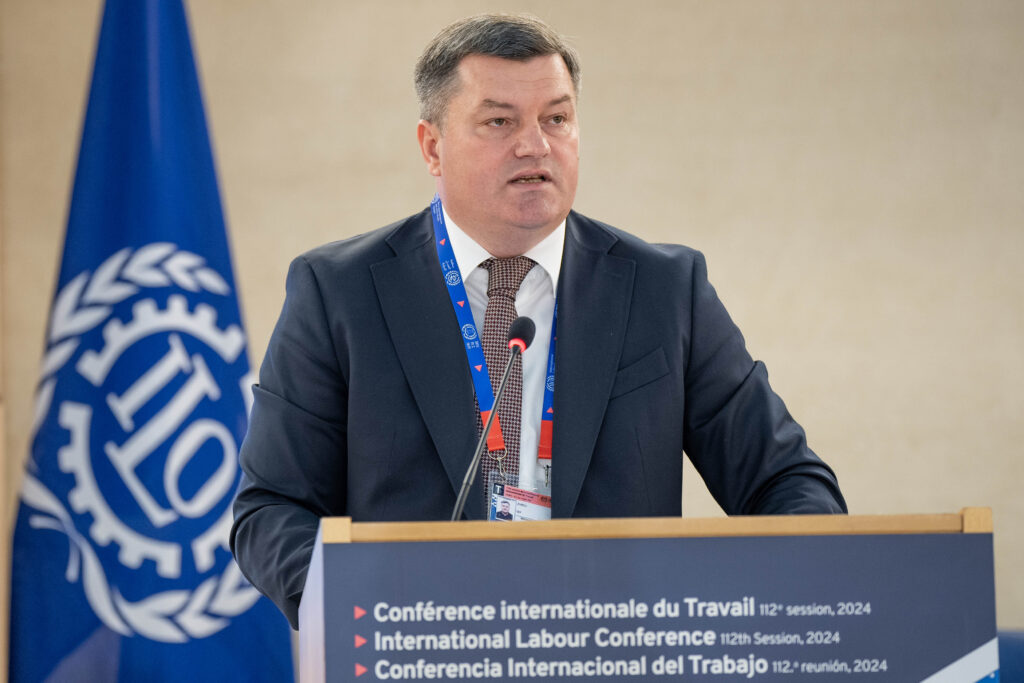On August 22, 2025, the 8th Congress of the Trade Union Federation of Workers from Automotive and Agricultural Machinery Industry was held at Vocational School No. 9 in Chișinău. During the Congress, the Federation’s activity report for the period 2020–2025, as well as the report of the Audit Committee, were presented and reviewed.
The Federation’s activity report for 2020–2025 provided a comprehensive analysis of the work carried out since the 7th Congress, focusing on the achievement of strategic objectives. It detailed the Federation’s contribution to defending the professional, economic, and social interests of the branch’s employees and trade union members, trade union rights and labor rights, occupational safety and health (OSH), international relations, and informational activities.
According to the information presented by Boris Babici, President of the Federation, despite the current difficult conditions, enterprises in the sector have managed to find solutions for modernization, development, and launch into production of new types of machines and equipment adapted to the requirements of the market economy. It was also emphasized that the potential of these enterprises enables the country to be fully supplied with the main agricultural machinery necessary for the national economy.
In this context, it was underlined that state support is indispensable both for domestic agricultural machinery manufacturers and for those in the agricultural sector, and that such support must be a key element of the economic strategy for the development of national agricultural production.
The report highlighted the importance of the branch-level Convention and Collective Labor Agreements at the enterprise level, as well as the essential role of OSH, including the need to establish OSH Committees within enterprises in the sector. The activities of the Risk Factors Control Laboratory, created by the National Trade Union Confederation of Moldova (CNSM), were also mentioned; the laboratory conducts instrumental measurements of lighting, microclimate, noise levels, vibrations, and electromagnetic fields at workplaces.
It is noteworthy that Sergiu Sainciuc, Vice President of CNSM, participated in the Congress sessions and addressed a greeting message to the attendees. He referred to the activities and objectives of CNSM, emphasizing the importance of strengthening social dialogue at the branch level.
Gheorghe Gangură, Vice President of the Federation and OSH inspector, stressed that during the reference period the Federation was actively involved in establishing the sectoral committee for vocational training in the manufacturing of machinery, equipment, and tools. He noted that these sectoral committees represent a platform for social dialogue between labor market representatives and educational institutions, aiming to identify the needs of economic agents and integrate them into the vocational training process. It was also remarked that the process of developing new occupational standards continued, and accelerating this process through the involvement of sectoral committees or adopting existing standards from European Union countries was proposed.
To support industrial potential, revitalize the national economy, create new employment opportunities, attract investments, and encourage the return of migrant workers, the Federation has supported and promoted, in recent years, the implementation of the Law on Industrial Parks and Free Economic Zones. In this context, the Federation also adopted a set of proposals formulated by the branch Youth Organization, aiming to improve living standards, reduce migration, decrease youth unemployment, and ensure housing for young people.
Other actions undertaken by the Federation during the period included promoting the establishment of specialized labor courts or judicial panels specialized in resolving labor disputes, balneotherapy treatment for sector workers, and summer recreation for children. This also includes the annual participation of children of sector employees in the Children’s Festival of Europe and Asia, held in Ankara, Turkey, organized by the International Trade Union Organization IEMF, of which the Federation is a member.
During the Congress, Boris Babici, the Federation’s President, requested his resignation. Delegates unanimously elected Gheorghe Gangură as the new President of the Trade Union Federation of Workers from Automotive and Agricultural Machinery Industry for a new term.
The Congress adopted the Federation’s development strategy for the period 2025–2030. To achieve the established objectives, the Federation intends to take firm measures to prevent the reduction of employees’ rights and guarantees as provided by international law norms, European Union legislation, the Constitution of the Republic of Moldova, the Labor Code, the Trade Unions Law, and other normative acts regulating labor and trade union protection.
The Congress adopted a Declaration addressed to the Government of the Republic of Moldova concerning the support and protection of domestic producers in the sector. The declaration can be accessed here:
Additionally, 12 Congress resolutions were adopted, including, for the first time, a resolution dedicated to digitalization and artificial intelligence. Delegates also presented several proposals to CNSM and addressed the country’s top leadership with demands concerning the creation of new jobs, ensuring decent salaries, guaranteeing safe and healthy working conditions, fair pensions, and quality medical services.

